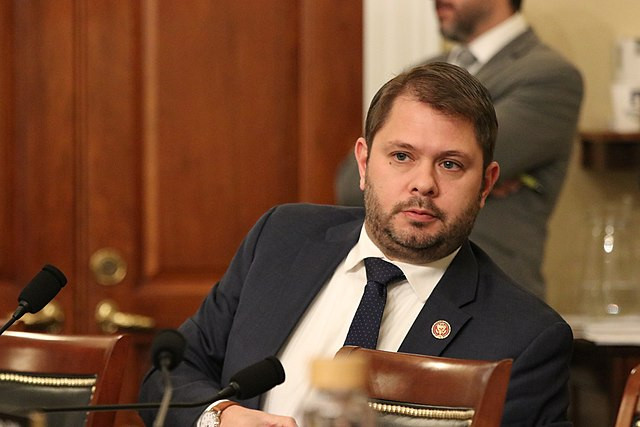Senator Ruben Gallego (D., Ariz.) announced his support for the Laken Riley Act, a controversial Republican-backed immigration bill named after a Georgia nursing student who was killed by an undocumented immigrant. The legislation, which passed the House on Tuesday with bipartisan support, mandates stricter detention requirements for undocumented immigrants accused of theft or burglary and grants states new authority to sue the federal government over immigration policies.
"Arizonans know the real-life consequences of today's border crisis," Gallego said in a statement. "We must give law enforcement the means to take action when illegal immigrants break the law, to prevent situations like what occurred to Laken Riley. I will continue to fight for the safety of Arizonans by pushing for comprehensive immigration reform and increased border security."
The Laken Riley Act has emerged as one of the first major legislative moves in the new GOP-controlled Congress and reflects a broader effort by Republicans to advance President Trump's immigration agenda. The bill cleared the House with a vote of 264-159, including support from 48 Democrats, an increase from the 37 who backed similar legislation last year.
The legislation is named after Laken Riley, a 22-year-old Georgia nursing student who was murdered in February 2024 by Jose Antonio Ibarra, a Venezuelan national who had crossed the border illegally. Ibarra, later convicted of Riley's murder, had a record of previous arrests and releases, which Republicans have highlighted as a failure of the immigration system.
Under the proposed law, Immigration and Customs Enforcement (ICE) would be required to detain undocumented immigrants accused-not necessarily convicted-of theft or larceny. The act also empowers state attorneys general to sue the Department of Homeland Security (DHS) if the agency fails to detain individuals covered by the legislation.
Critics argue the bill undermines federal authority over immigration and exacerbates systemic inefficiencies. Nayna Gupta, policy director at the American Immigration Council, warned of significant consequences. "This would be a seismic shift in the balance of power between the federal government and states and would exacerbate the inefficient mess of the U.S. immigration system," Gupta said.
Proponents, including Senator John Fetterman (D., Pa.), maintain the bill addresses critical public safety concerns. "Laken Riley's story is a tragic reminder of what's at stake when our systems fail to protect people," Fetterman said. "Immigration is what makes our country great. I support giving authorities the tools to prevent tragedies like this one while we work on comprehensive solutions to our broken system."
Opposition from immigration advocates remains strong. Kerri Talbot, co-executive director of the Immigration Hub, described the bill as "political gamesmanship at its worst" and criticized its potential to increase mandatory detention. "This bill weaponizes the justice system to incarcerate immigrants for minor infractions, empowers extremists to rewrite immigration policy, and tears apart families who have long called this country home," Talbot said in a statement.
The bill's progress now shifts to the Senate, where Republicans, who unanimously support the legislation, need eight Democratic votes to overcome a filibuster. In addition to Gallego, Senators Gary Peters (D., Mich.), John Fetterman, and Jon Ossoff (D., Ga.) are expected to back the bill.
The act's contentious provisions have sparked wider debate over the balance of federal and state authority in immigration enforcement. Gupta emphasized that granting states the power to sue DHS could lead to "chaos in the federal courts," with opposing political parties using the courts to challenge visa policies or release decisions.






